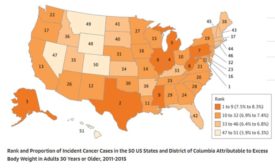Home » public health
Articles Tagged with ''public health''
WHO:
Health benefits far outweigh the costs of meeting climate change goals
December 20, 2018
Become a Leader in Safety Culture
Build your knowledge with ISHN, covering key safety, health and industrial hygiene news, products, and trends.
JOIN TODAYCopyright ©2025. All Rights Reserved BNP Media.
Design, CMS, Hosting & Web Development :: ePublishing









